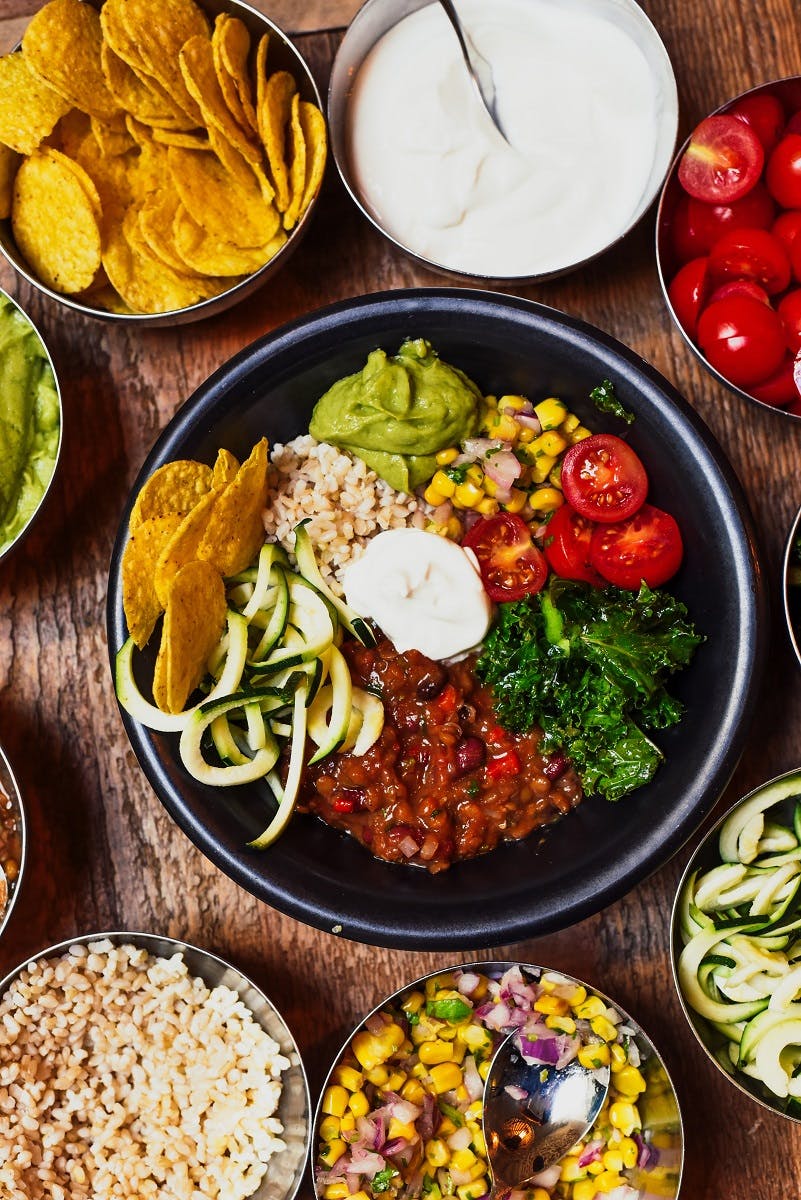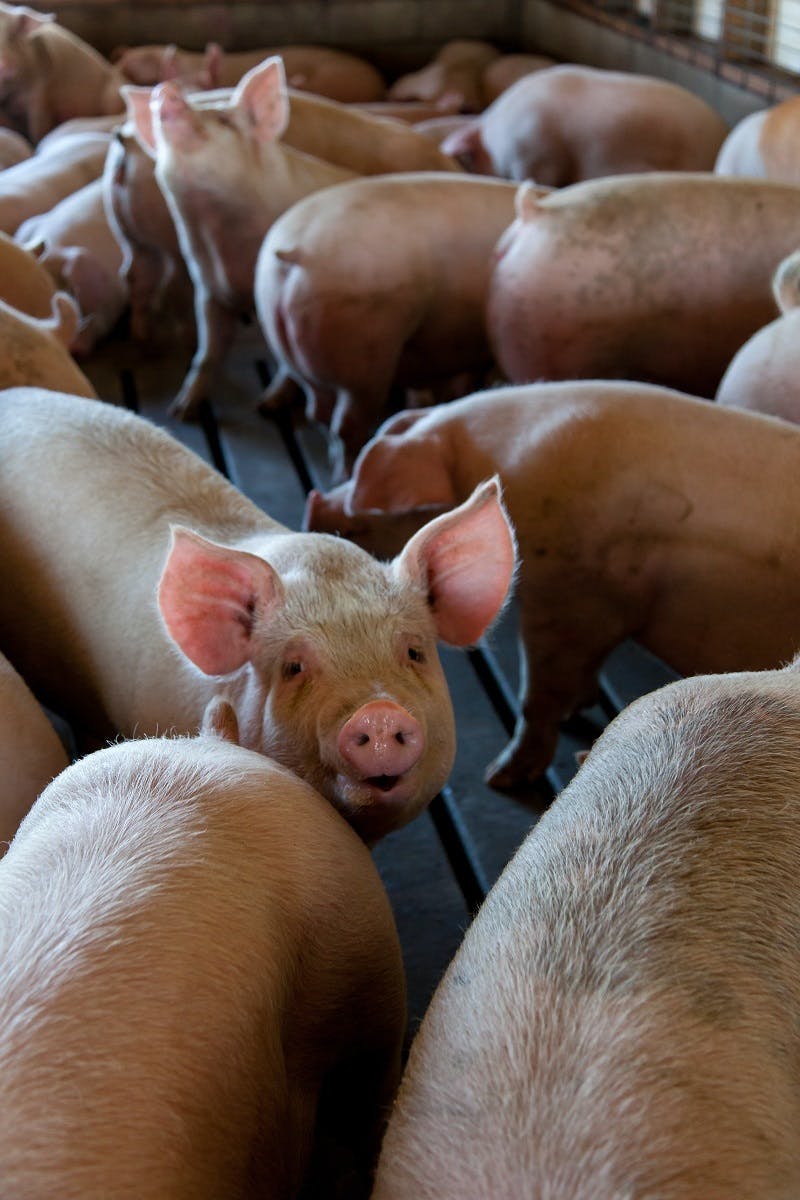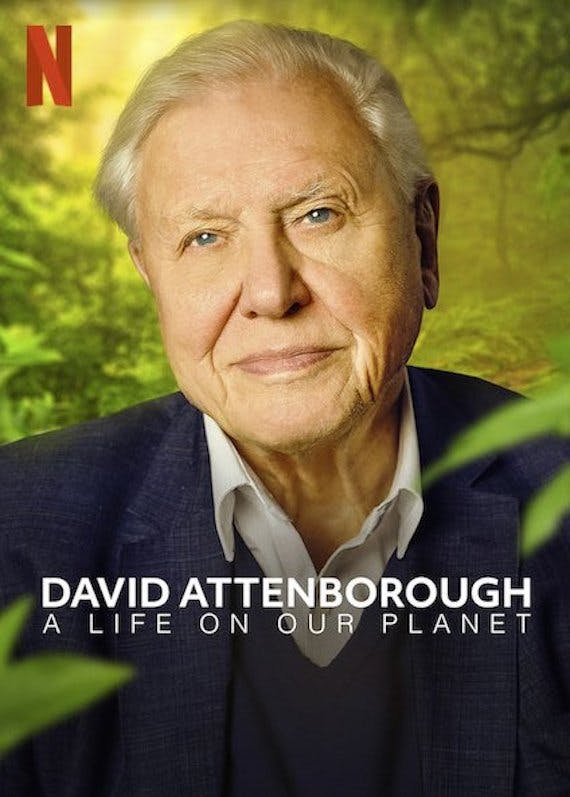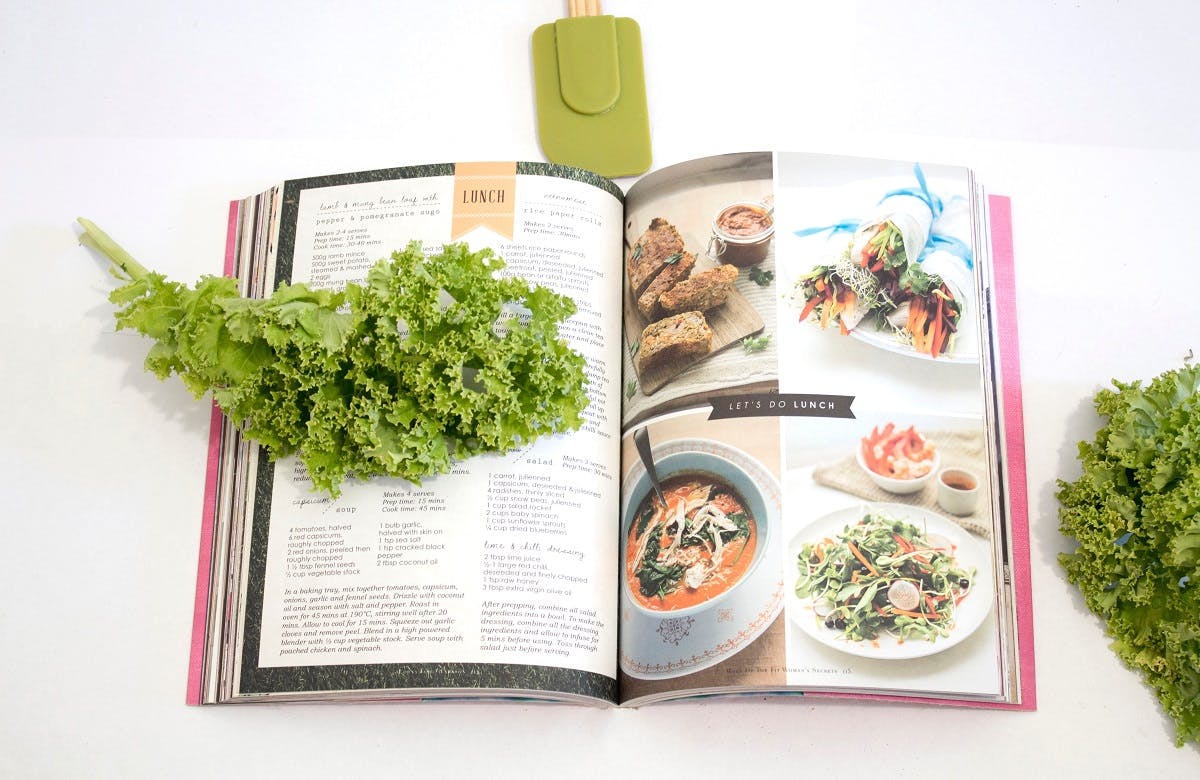
Natalie Fox
Changing our diet is one simple individual action that can positively impact the environment and being “flexitarian” shows a commitment to learning and exploring ways to eat more healthily and sustainably.
What the heck is a flexitarian?
A flexitarian is someone who is not strictly vegetarian or vegan; but is making an effort to increase their intake of plant based whole foods and minimise meat and dairy consumption. A combination of “vegetarian” and “flexible”; the flexitarian diet doesn’t have rules as such to follow but it encourages those practicing to make food choices based on the following principles:
• Eat mostly fruits, vegetables, legumes and whole grains.
• Focus on protein from plants instead of animals.
• Be flexible, incorporate meat and animal products from time to time.
• Eat the least processed, most natural form of foods.
• Limit added sugar and sweets.
DJ Blatner (US dietician and nutritionist) coined the term in her 2010 book “The Flexitarian Diet”. The book declares “Flexitarians weigh 15% less, have a lower rate of heart disease, diabetes and cancer, and live 3.6 years longer than their carnivorous counterparts.” but where the scientific evidence for these claims come from, we’re not sure. We did, however, find one peer-reviewed study that stated the flexitarian diet showed many benefits, with the “strongest evidence appearing to be in relation to weight loss and metabolic health benefits, including reduced diabetes risk and blood pressure” (Derbyshire, 2017)

Flexitarians: The new climate heroes
Changing our diet is one simple individual action that can positively impact the environment and being “flexitarian” shows a commitment to learning and exploring ways to eat more healthily and sustainably.
Before we talk about individual health, let's look at the earth as one big, living organism. The resources needed for human consumption include water, seeds, grains and livestock. Most of these resources are regenerative, and by using renewable sources of energy such as the sun, soil, compost and water, they will continue to grow. However, the aggressive and industrialised food industry has contaminated water and soil cycles; introducing pesticides and genetically modified organisms to speed up growth times and increase production yields, which is having an detrimental effect on the environment and is unsustainable.
Choosing a flexitarian diet and attempting to break reliance on factory farmed products; investing in organic, non GMO, unprocessed meat/dairy products, means consumers are challenging these profit based systems renowned for damaging natural resources, lands and processes. Rather than supporting a complete de-investment in the meat/dairy industry, however, being flexitarian encourages a reduction in meat/consumption coupled with choosing organic, free range or farm raised animal products.

Adopt a flexitarian diet to minimise your carbon footprint
A huge issue we are facing at the moment is the climate crisis, and many of our systems - food, water and travel - rely on emitting carbon dioxide through the process of consumption. By becoming aware of our individual carbon footprint we can have an initial measurement and a future target to work towards and on average our diet accounts for 40% of our carbon footprint. A flexitarian diet is a great way to shift towards reducing CO2 emissions by changing small, daily habits to be more carbon conscious. Here’s how:
Buying local - Going to the local market, on a bicycle to purchase fruits and veggies grown locally, not only makes more sense, is healthier personally but takes away the temptation to purchase a beautifully ripe Peruvian avocado packaged in plastic, flown over 5000 miles into Europe. Local systems thrive when the communities that depend on them, invest in them.
Reducing food waste - Food waste is responsible for 6% of global greenhouse gas emissions, almost 3 times higher than that of the aviation industry. By reducing food waste we’re actively reducing the amount of carbon dioxide gas released into the atmosphere and also making the most of resources. Scientists estimate that halving food loss and waste would reduce environmental pressures by 6–16% compared with the baseline projection for 2050.
Avoiding palm oil - many processed foods contain palm oil, a notorious chemical that comes from monoculture plantations in Asia, South America and Africa. Highly biodiverse rainforests are cleared to make room for these plantations. Not only are they contributing to less trees to sequester carbon, but they are responsible for decimating native forest ecosystems and species.


Take action now
Do you want to have a direct impact on climate change? Sir David Attenborough said the best thing we can do is to rewild the planet. So we run reforestation and rewilding programs across the globe to restore wild ecosystems and capture carbon.
Get involvedHealth is wealth
Moving towards a flexitarian diet is not only beneficial for our health and the health of the planet, but it’s healthy for our wallets too. One study on the financial differences between buying animal protein versus eating whole foods showed an animal protein diet cost almost $750 a year more. And if you are looking to replace animal protein with alternatives, look no further than pulses aka beans, lentils and peas. Not only are these foods cheaper, but they are rich sources of protein and include essential micronutrients such as iron, zinc, magnesium and folate. Their low GI (glycaemic index), means they release energy slowly over time, preventing surges in blood glucose, whilst being naturally gluten-free.
And despite cost being a big factor in some people's food choices, there may indeed be certain emotional/mental barriers around changing diets. Veganism is notoriously strict, ruling out any animal products from honey to gelatine. Vegetarianism is less so, as dairy is allowed, but it may cause problems in the parmesan department (which tends to include rennet, a byproduct of the beef industry). The flexitarian bypasses the angst that comes from abstaining or turning down Grandma’s specially baked lemon drizzle cake as you can go as deep into it (as often) as you choose.

The who's who of flexitarians
We came across several celebrities who adopt a flexitarian diet including Gwyneth Paltrow, Samuel L Jackson and Miley Cyrus. Elders who have been at the forefront of social and environmental movements for decades such as Dalai Lama and David Attenborough are also advocates.
In his latest Netflix documentary “A life on our planet” Attenborough hones in on diet as a way we can actually work in harmony with nature, and look after our planet for generations to come: “We must change our diet. The planet can’t support billions of meat-eaters. If we had a mostly plant-based diet we could increase the yield of the land. We have an urgent need for free land… Nature is our biggest ally.”
The connection between our diet and the planet is also supported by an Oxford University researcher who found if every family in the UK swapped a red meat meal to a plant-based meal just once a week, the environmental impact would be the same as taking 16 million cars off the road.
And if that doesn’t convince you, then The Committee on Climate Change’s most recent report confirms that a shift towards a diet that's less reliant on carbon-intensive animal products could enable you as an individual to reduce your dietary emissions by 35 percent.

If every family in the UK swapped a red meat meal to a plant-based meal just once a week, the environmental impact would be the same as taking 16 million cars off the road.
J. Poore and T. Nemecek reasearchers at Oxford University
Easy and delicious flexitarian recipe ideas
So what exactly do flexitarians eat? The great part is that you can really tailor this diet to suit your own needs and wants. As long as you have in mind the principles, anything goes.
Our favourite chef when it comes to Flexitarian meals has to be: Anna Jones.
The former Jamie Oliver apprentice has made a household name for herself when it comes to exciting veggie dishes and her new cookbook: ONE will be released in March 2021. One is comprised of over 150 recipes for super-quick one-pan or tray vegetarian or vegan suppers and also helps you to reduce waste, use leftovers and make your kitchen plastic free. Sign up to Anna’s newsletter here: http://annajones.co.uk/
Flexitarian Meal Plan
What about an actual menu? Here are some ideas for a week long “flexitarian” meal plan:
Monday
Keep it meat free with a Moroccan Tagine
https://www.bbc.co.uk/food/recipes/slow_cooker_chickpea_12414
Tuesday
Taco Tuesday: Vegetarian style
https://www.bbc.co.uk/food/recipes/easy_vegetarian_tacos_88736
Wednesday
Go wild with wild or (any other kind of) rice pilaf
https://www.olivemagazine.com/recipes/vegetarian/aubergine-pilaf-with-crispy-halloumi/
Thursday
Be inspired by Iran, and their stuffed aubergines
https://www.bbc.co.uk/food/recipes/iranianstuffedauberg_2405
Friday
Has to be curry night, so what about a lentil one?
https://foxeslovelemons.com/vegan-lentil-curry/
Saturday
Home made pizza; you cannot beat it
https://www.bbcgoodfood.com/user/39789/recipe/homemade-pizza-0
Sunday
Plenty of ways to incorporate plant based foods in a Sunday roast
https://www.bbcgoodfood.com/recipes/collection/vegetarian-sunday-roast-recipes


Sources & further reading

- “What is a Flexitarian?” - World Animal Protection
- “Food waste is responsible for 6% of global greenhouse gas emissions” - Our World in Data
 Eat mostly fruits, vegetables, legumes and whole grains.
Eat mostly fruits, vegetables, legumes and whole grains.